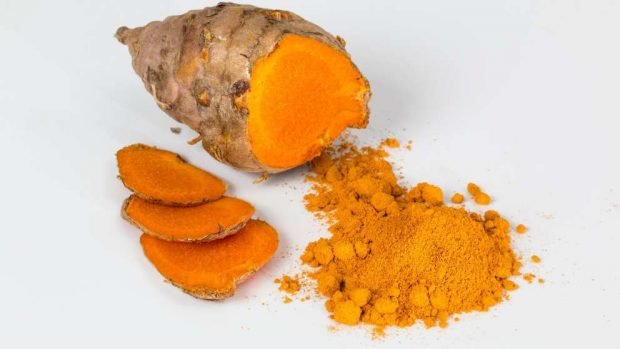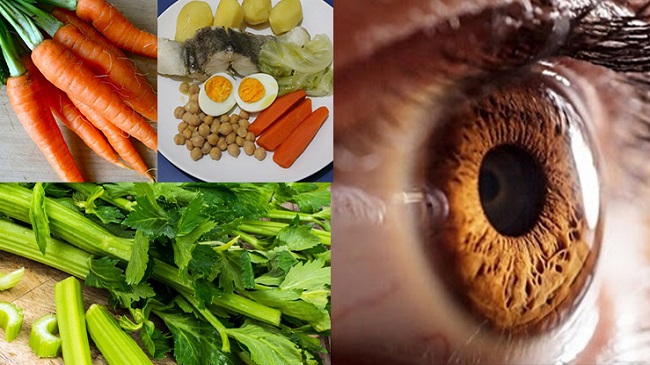10 Benefits of Okra and How to Make it (With Recipes)
Okra is a vegetable that has good amounts of folate and vitamin C, nutrients that participate in the formation of blood cells and improve the absorption of iron from food, helping to prevent anemia.
Furthermore, okra is also rich in fiber that helps to prolong satiety and reduce the absorption of fats, making it a great option for facilitating weight loss and regulating blood sugar and cholesterol levels.
Okra, also known as okro has a mild flavor and can be consumed easily either raw or cooked, also in preparations such as stews, roasts, salads, soups and juices.

Main benefits of Okra
The main health benefits of consuming okra are:
1. Helps you lose weight
Okra helps you lose weight because it is rich in fiber that increases the time it takes to digest food, prolonging the feeling of satiety. Furthermore, okra is a low-calorie food, making it a great option to include in weight loss diets.
However, it is important to remember that to lose weight, okra must be incorporated into a low-calorie diet, accompanied by regular physical activity.
2. Controls glucose levels
Okra helps control blood glucose levels, preventing insulin resistance and diabetes. This is because okra has great amounts of fiber that slows down the absorption of carbohydrates from food.
3. Prevents premature aging
Because it is rich in vitamin C, a nutrient that has antioxidant action, okra helps in the production of collagen, a protein responsible for maintaining the firmness and elasticity of the skin, preventing premature aging.
Furthermore, okra also contains excellent amounts of beta-carotene, a pigment that protects the skin against damage caused by exposure to the sun’s ultraviolet rays, delaying skin aging.
4. Fighting constipation
Due to its high amount of fiber, okra stimulates natural bowel movements and increases the volume of feces, facilitating evacuation and combating constipation.
5. Maintains eye health
Okra maintains eye health because it contains lutein and zeaxanthin , which are carotenoids that protect the eyes against damage caused by ultraviolet rays and blue light from electronic devices, such as computers, cell phones and tablets.
Thus, lutein and zeaxanthin help prevent the appearance of cataracts, diabetic retinopathy and age-induced macular degeneration, which is a disease that can lead to vision loss.
6. Balances cholesterol levels
Because it contains great amounts of fiber, okra reduces the absorption of fats in the intestine, balancing blood cholesterol levels and preventing cardiovascular diseases, such as heart attack, atherosclerosis and high blood pressure.
In addition, okra is also a good source of vitamin C and beta-carotene, nutrients that prevent the oxidation of fat cells, controlling cholesterol and triglyceride levels in the blood.
7. Improves memory
Okra improves memory because it is rich in lutein, a carotenoid that preserves the functions of neurons, in addition to protecting them against damage caused by free radicals.
Furthermore, the vitamin C present in okra is also essential for the production of dopamine, which is a neurotransmitter responsible for memory and learning.
8. Prevents anemia
Okra prevents anemia, as it has excellent amounts of vitamin C, a nutrient that favors the absorption of iron present in food, helping in the formation of hemoglobin, one of the components of red blood cells that is responsible for transporting oxygen throughout the body.
9. Maintains bone health
Okra is rich in vitamin K, an important nutrient for the production of osteocalcin, which is a protein whose function is to stimulate the fixation of calcium, maintaining bone health and preventing osteoporosis.
10. Strengthens immune system
Okra strengthens the immune system, as it contains vitamin C, a nutrient that improves the functions of defense cells, helping to fight fungi, viruses and bacteria.
Does okra make you fat?
Because it is a food low in carbohydrates and fats, okra does not make you fat. Furthermore, okra also has great amounts of fiber that helps increase satiety, reducing hunger and food intake throughout the day.
Does Okra water lowers glucose?
Although it is believed that okra water lowers blood glucose levels, there are still no scientific studies that prove the benefits of this water for controlling blood sugar levels or diabetes.
Nutritional information table
The following table provides nutritional information for 100 g of raw and cooked okra:
| Component | 100g raw okra | 100g cooked okra |
|---|---|---|
| Energy | 33 calories | 22 calories |
| Carbohydrates | 6.4g | 4.5g |
| Proteins | 1.9g | 1.9g |
| Fats | 0.3g | 0.2 g |
| Fibers | 3.2g | 2.5g |
| Vitamin C | 23 mg | 16.3 mg |
| Vitamin K | 31.3 mcg | 40 mcg |
| Folate (vitamin B9) | 60 mcg | 46 mcg |
| Beta-carotene | 416 mcg | 170 mcg |
| Lutein + Zeaxanthin | 280 mcg | 390 mcg |
| Phosphorus (little) | 61 mg | 32 mg |
| Potassium (little) | 299 mg | 135 mg |
To obtain all the benefits from consuming okra, it is also important to maintain a healthy and varied diet and practice physical activity regularly.
How to make okra
Although there is no specific amount recommended for okra consumption, the minimum daily recommendation of vegetables is between 2 and 3 servings, which corresponds to between 160 g and 240 g per day.
Okra can be consumed raw or cooked in preparations such as stews, roasts, salads, stews, soups and juices.
How to get rid of drool from okra
To remove drool from okra, you must wash the whole vegetables, dry well with a clean cloth and then rub them with lemon broth. Afterwards, cut the ends of the okra and use them whole in the preparations.
Healthy recipes with okra
Some healthy recipes with this food are sautéed okra, juice, chicken with okra and salad.
1. Braised okra
Ingredients:
- 300 g of okra;
- 2 garlic cloves;
- 1 tablespoon of olive oil;
- Salt and black pepper to taste.
Method of preparation:
Wash and dry the okra well. Cut off the ends of the okra and cut them lengthwise. Place a non-stick frying pan over medium heat, adding the olive oil and garlic. Add the okra, little by little, to the frying pan, season with salt and pepper and let it sauté for 2 minutes on each side. Serve then.
2. Okra juice
Ingredients:
- 100g of okra;
- 1 glass (200 ml) of orange juice;
- 1 glass (200 ml) of filtered or boiled water;
- Honey to taste.
Method of preparation:
Wash well, remove the ends and cut the okra into slices. Place all ingredients in the blender and blend until smooth. Serve then.
3. Chicken with okra
Ingredients:
- 1 whole chicken;
- 200 g of okra;
- 2 lemons;
- 1 chopped onion;
- 1 chopped tomato;
- 5 chopped garlic cloves;
- 1 chopped pepper;
- 1/4 cup of olive oil;
- 1 teaspoon of cumin powder;
- Salt, black pepper and green scent to taste;
Method of preparation:
Season the chicken with onion, garlic, peppers and tomatoes and set aside. In a pan, sauté the chicken over medium heat and when it is golden, add a little water to cook.
Add salt, pepper and green chillies to taste to season. Cut the okra into cubes and after 20 minutes of cooking the chicken, add them to the pan, letting it cook for another 20 minutes. Remove from heat and serve while still hot.
Read Also: Health Benefits Of Tapioca: Properties – Nutrients & Preparation
4. Raw okra salad
Ingredients:
- 200 g of okra;
- 1 medium onion, sliced;
- 1 medium tomato, chopped;
- 3 tablespoons of vinegar;
- 3 tablespoons of olive oil;
- Juice of ½ lemon;
- Salt and coriander to taste.
Method of preparation:
Wash, dry well and cut off the ends of the okra, discarding them. Cut the okra into approximately 2 cm slices. In a bowl, place all the ingredients, mixing with a spoon, and then serve.







